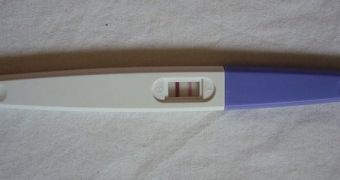Scientists with the Wexner Medical Center, led by director of reproductive epidemiology research, Dr. Courtney Denning-Johnson Lynch, have discovered in a new study that women who are stressed before trying to conceive a baby are far more likely to suffer from infertility and inability to procreate.
The research demonstrates that pre-conception stress plays a more important role in determining fertility level than previously assumed. Additionally, the team identified a potential double bind in the data. This means that the inability to conceive is a very stressful experience, which can in turn contribute to making it even harder for conception to occur.
The WMC team suggests that women who are having a hard time getting pregnant should first try to reduce or manage their stress levels, by applying standard techniques. These include mindfulness, various forms of meditation, yoga, physical exercises and so on. Reducing stress should be very high on their list of priorities, the group suggests.
According to Lynch, women who displayed high levels of a saliva biomarker called alpha-amylase were up to 30 percent less likely to remain pregnant over 30 days. This marker is used to gage stress levels in the human body. The same group of women was also found to be 200 percent more likely to meet the clinical definition of infertility.
This means that they were unable to conceive over a period of 12 months, despite unprotected intercourse, and in the absence of other medical conditions that might hamper conception. The team monitored the cases of 501 women from the US for this research. All test participants were enrolled in the Fertility and the Environment (LIFE) Study, PsychCentral reports.
“This is now the second study in which we have demonstrated that women with high levels of the stress biomarker salivary alpha-amylase have a lower probability of becoming pregnant, compared to women with low levels of this biomarker,” says Lynch, who is the principal investigator for the psychological stress protocol in the LIFE Study.
“For the first time, we’ve shown that this effect is potentially clinically meaningful, as it’s associated with a greater than two-fold increased risk of infertility among these women,” she goes on to say. The research group tracked the test participants for a maximum of 12 months, or until they succeeded in becoming pregnant.
Scientists say that couples should not worry excessively if they fail to conceive a baby the moment they set their minds on it. Eliminating stress factors is the most important thing to do beforehand, as is quitting toxic habits, including smoking and drinking.

 14 DAY TRIAL //
14 DAY TRIAL //